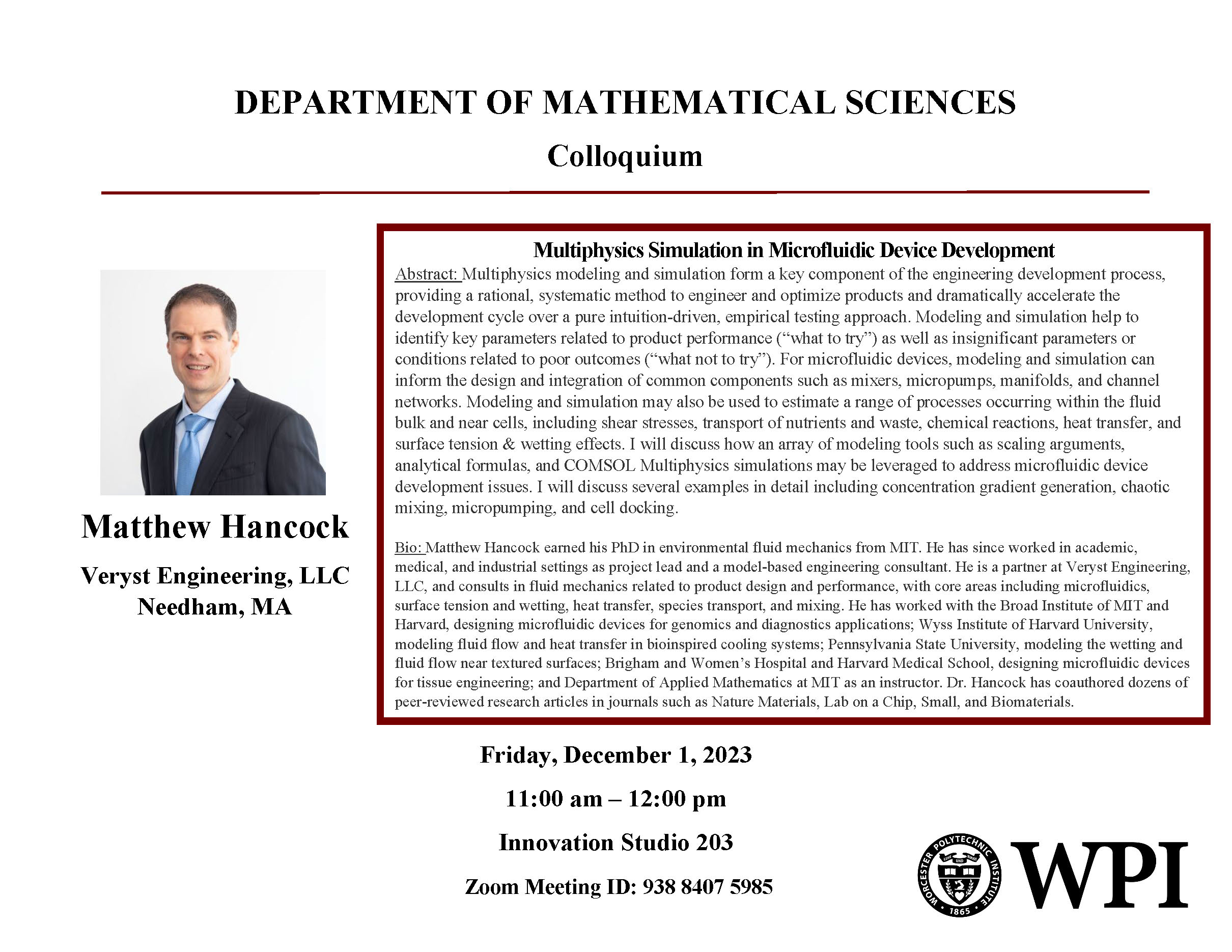Mathematical Sciences Department Colloquium - Matthew Hancock, PhD, Veryst Engineering, LLC "Multiphysics Simulation in Microfluidic Device Development" (Innovation Studio 203)
11:00 a.m. to 12:00 p.m.

Mathematical Sciences Department
Colloquium
Speaker: Matthew Hancock, PhD, Veryst Engineering, LLC
Friday, December 1, 2023
11:00 am - 12:00 pm
Innovation Studio 203
Zoom Meeting ID: 938 8407 5985
Host: Vadim Yakovlev
Title: Multiphysics Simulation in Microfluidic Device Development
Abstract: Multiphysics modeling and simulation form a key component of the engineering development process, providing a rational, systematic method to engineer and optimize products and dramatically accelerate the development cycle over a pure intuition-driven, empirical testing approach. Modeling and simulation help to identify key parameters related to product performance (“what to try”) as well as insignificant parameters or conditions related to poor outcomes (“what not to try”). For microfluidic devices, modeling and simulation can inform the design and integration of common components such as mixers, micropumps, manifolds, and channel networks. Modeling and simulation may also be used to estimate a range of processes occurring within the fluid bulk and near cells, including shear stresses, transport of nutrients and waste, chemical reactions, heat transfer, and surface tension & wetting effects. I will discuss how an array of modeling tools such as scaling arguments, analytical formulas, and COMSOL Multiphysics simulations may be leveraged to address microfluidic device development issues. I will discuss several examples in detail including concentration gradient generation, chaotic mixing, micropumping, and cell docking.
Bio: Matthew Hancock earned his PhD in environmental fluid mechanics from MIT. He has since worked in academic, medical, and industrial settings as project lead and a model-based engineering consultant. He is a partner at Veryst Engineering, LLC, and consults in fluid mechanics related to product design and performance, with core areas including microfluidics, surface tension and wetting, heat transfer, species transport, and mixing. He has worked with the Broad Institute of MIT and Harvard, designing microfluidic devices for genomics and diagnostics applications; Wyss Institute of Harvard University, modeling fluid flow and heat transfer in bioinspired cooling systems; Pennsylvania State University, modeling the wetting and fluid flow near textured surfaces; Brigham and Women’s Hospital and Harvard Medical School, designing microfluidic devices for tissue engineering; and Department of Applied Mathematics at MIT as an instructor. Dr. Hancock has coauthored dozens of peer-reviewed research articles in journals such as Nature Materials, Lab on a Chip, Small, and Biomaterials.